Ertach Kernow - West Cornwall pubs; Fancy a pint?
Churches, chapels and pubs all are an Important part of Cornwall’s heritage. This past week I picked up a small book entitled ‘One Hundred Doors are Open’ by Arthur Caddick, published in 1956, about pubs in mid and west Cornwall. He must have really enjoyed researching this and I wondered how some of these had changed over the past sixty-five years. I’ve certainly enjoyed reading it and also learning more about Arthur.
Let’s see what Arthur thought about just a few of his featured hostelries, with my notes on the present day.
THE SAILORS ARMS, NEWQUAY - Licensee: Mrs. Sands (Devenish)
‘The Sailors Arms is a cheerful inn in the centre of the older part of Newquay, and it's much more a typically-Cornish tavern than many of the other places round here. You can get snacks, home-made Cornish pasties, and home-made steak and kidney pie here, and you won't be charged for them as if they were caviar, and that's a thing that makes the Sailors Arms just a little different. Another thing is that they have a Television set, but, up to now, customers remain loyal.’
Still open and very different. What Arthur would have thought about the growth of televisions in pubs we can only guess. One of my haunts some 20 years after Arthur wrote this.
SLOOP INN, ST. IVES Licensee: Phil Rogers (Simmons)
‘The Sloop is the age-old haunt of fishermen. It is the only waterside tavern in St. Ives, and the last waterside tavern on this coast. After this, the land down to Cape Cornwall has no refuge for sailors, only menace. The lifeboat is launched from the nearby slipway, and this splendid old inn has found its real history in the lives and deaths, by drowning, of Cornish seafarers, in the gales rising in no time at all to a roaring crescendo of fury, in the wind-lashed waves that crash against the harbour walls.
However, nothing lasts, and five centuries of sea-faring history are passing into memory. The Sloop is now voyaging through the deep, deep waters of cultural fame. St. Ives has become what Paris might have been, if French painters hadn't painted quite so well, and this inn is now the bistro of its Quartier Latin. Everybody arrives at the Sloop. They come to stare at the geniuses, who haven't arrived, and the geniuses love it. If nobody looks at your paintings, well, it helps a bit if someone looks at you.
Phil Rogers sometimes comes and stands on your side of the bar. Stand is a word of posture. He is a well-known, well-liked landlord, perched imperturbably between pilchards and Picassos. He looks at both with the smile of a dreamer and the eyes of a hawk, and, somehow, manages to make two worlds. happy.’
Happily, still open and offering food, accommodation and its own named Cornish produced gin, made with local products.
HALFWAY HOUSE INN, FRADDAM Licensee: Sydney Jay Bradshaw (Devenish)
‘This inn is at the cross-roads of the Hayle-Helston and Camborne-Marazion roads. It probably owes its name to its site, half-way down the .Pilgrims' Way from Barriper to St. Michael's Mount. It was a farmhouse-inn up to the sixteenth century, and originally thatched. You can see the old oak-beams, and a magnificent example of a granite open fire-place. You can get meals, if ordered, pasties, and snacks for thirty, with notice.
This inn once served two of the weirdest customers in Cornwall, a man and a woman who "thwarted" each other. This is not Cornish for "courted". The man was the White Magician of Pengersick, the woman the Witch of Fraddam. The Magician thwarted the Witch once too often and there was a Wizards' free-for-all. The Witch lost and was hurled into the sea, and is still there, paddling like a thwarted witch for port. The Magician landed in the inn, and ended up the fireplace or drowned in ale, or something. Anyhow, he vamoosed.’
Sadly, closed as a pub in about 1986 it is now a residential property named Halfway House.
THE LOBSTER POT, MOUSEHOLE - Owner: Major J T Kelly
‘The foundations of this hotel date back before the burning of Mousehole by the Spaniards, in 1595, and it has been scheduled as a building of historic interest.
The Lobster Pot has a Full Table Licence for meals, both for residents and for those who call casually, and it is noted for the quality of its wines and the wide range of vineyards from which they come.
From mid-March to mid-October, you can get morning coffee, up to noon, and lunch from one o'clock until half-past two. You can also get tea, and they serve dinner from a quarter past seven. You can choose your own time for dinner, but your order should be given by nine.
If you want oysters, lobster, salmon, both fresh and smoked, you will find them here, in season.
When someone asked Major Kelly what beauty-spot was the nearest to his hotel, he replied, simply "Cornwall". Wine is not the only thing the true connoisseur can judge.’
The Lobster Pot is sadly no longer a pub, having been converted into flats. Let’s not whine, at least the building has been saved.
THE LUGGER HOTEL, PORTLOE - Licensee: Charles Powell (Free House)
The right turn for Portloe, on the way from Portscatho, towards St. Austell, is at Crugsillick, and a lot of people have been turning right there for the last two and a half centuries, bound for the Lugger. Many of them were smugglers.
This is the authentic seventeenth-century inn, where the meals are splendid. A landlord, who's clever enough to get a Free House down here, will also be clever enough to keep a grand cellar. Just to make sure, settle in the "snuggie", the little bar, and carry on. Your doubts will soon drown.
Now an AA five star rated Inn with letting bedrooms and high-quality restaurant serving local produce.
THE GURNARD'S HEAD HOTEL, ZENNOR - Licensee: James Goodman (Free House)
Some people find that even burial-mounds and prehistoric remains increase the appetite, if you have to walk a few miles to inspect them, and it is one of those bracing days up here, when the wind's kind but northerly. This is an hotel where you can get really good meals—lunches, dinners, teas, full board when they have room.
It's also a very cheerful place for a drink. A great number of people drive out in the summer, from St. Ives and Penzance, with the excuse that they want to see Gurnard's Head and the sea, but what they really mean is that they want to sit in the Gurnard's Head, with a good drink, and look at the oceanic murals. This seems to be a very reasonable point of view.
Now described as a dining pub and still open. They emphasise the simple things in life done well, with locally sourced ingredients.
THE SWORDFISH INN, NEWLYN (PENZANCE) Licensee: Michael Atherton (Simmons)
‘This inn, at the heart of the fishing-centre of Newlyn, near the market, has been a home from home for fishermen for two and a half centuries. You can get snacks here, and also shocks. A stream-lined lounge has sprung up at the back, complete with oak panels. Up to this year, this inn was the Union Inn, a name marking the Union of England and Scotland in 1707 and giving a date which is very near to the Tolcarne' s date, 1717. Somebody seems to have been rubbing out a bit of history, unless the brewers have discovered that the Act of Union, 1707, was also the Statute of Swordfish.’
This historic pub is still very much open for business, now with accommodation. It’s previous history as the Union Inn seems to have been lost to time and the internet.
I believe I would have enjoyed a chat over a pint or two with Arthur, a prolific poet and writer. I shall enjoy sharing more of the venues he visited in due course. Any thoughts or comments regarding memories of these establishments or licensees or even Arthur himself that we can share would be most welcome.
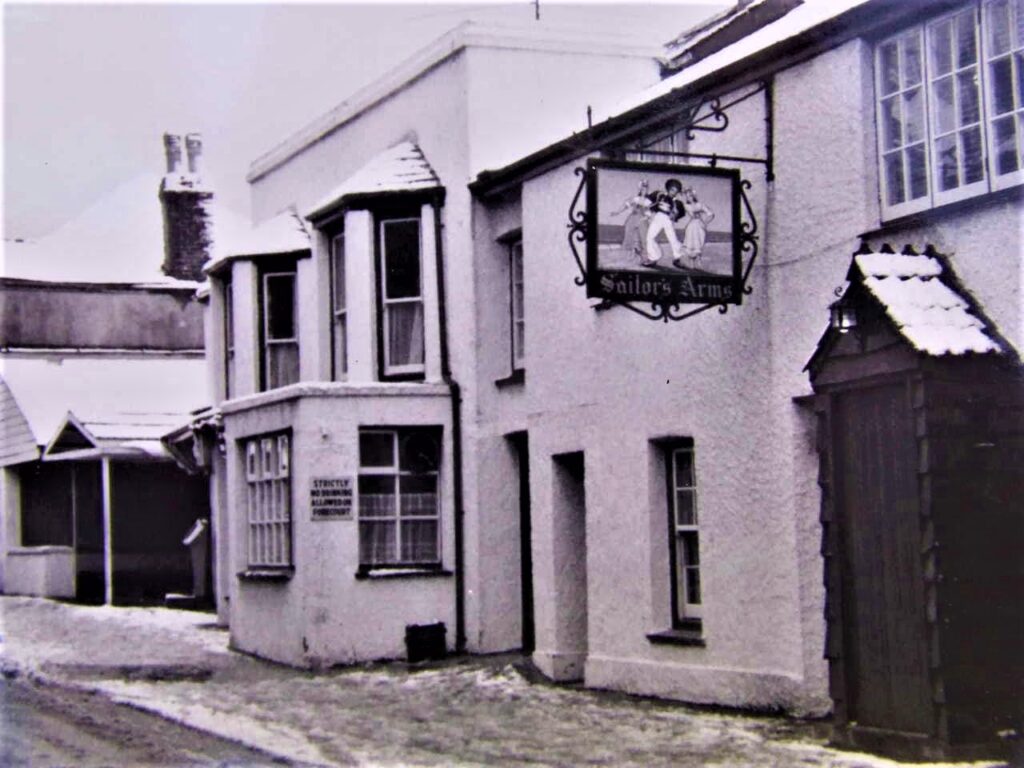
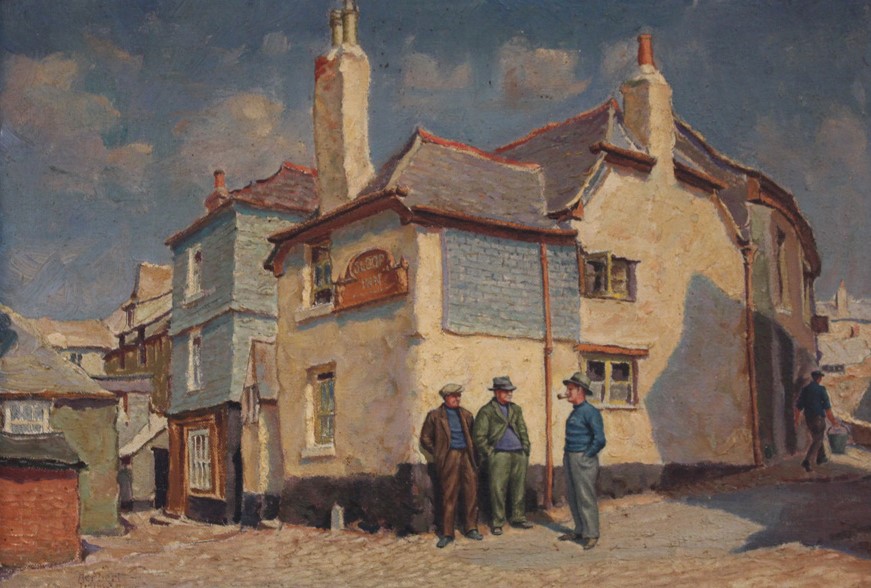
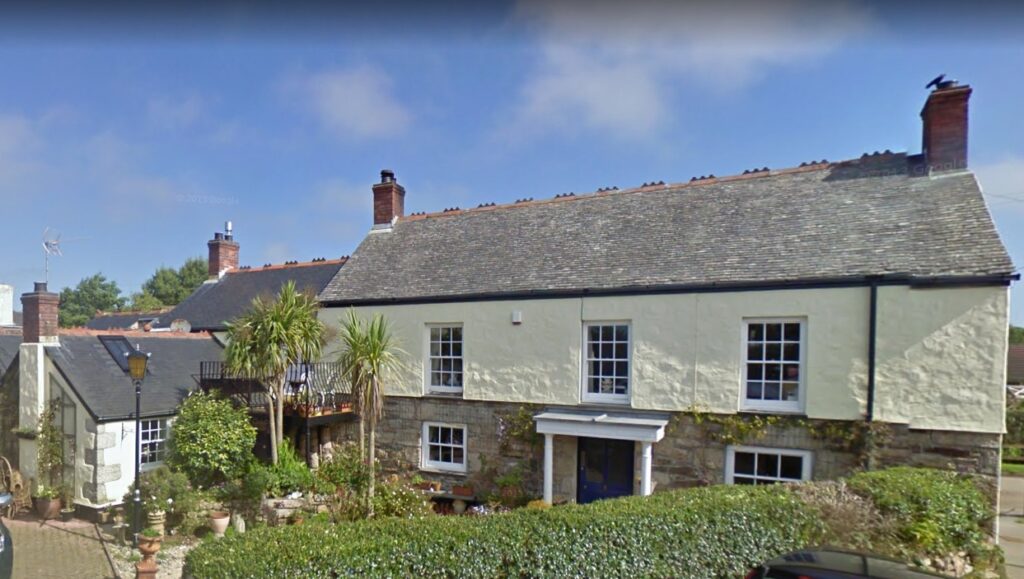
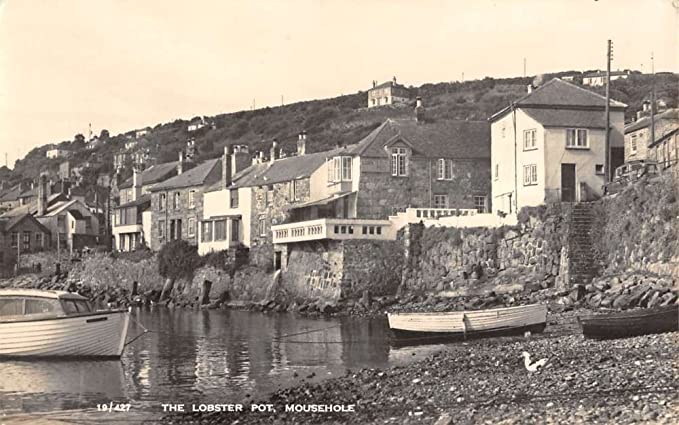
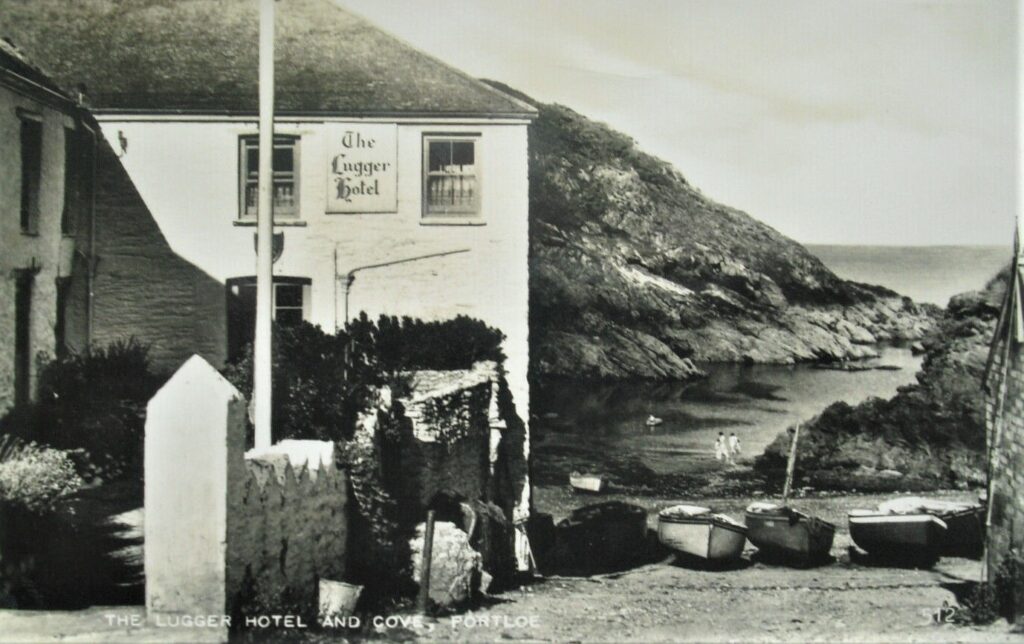
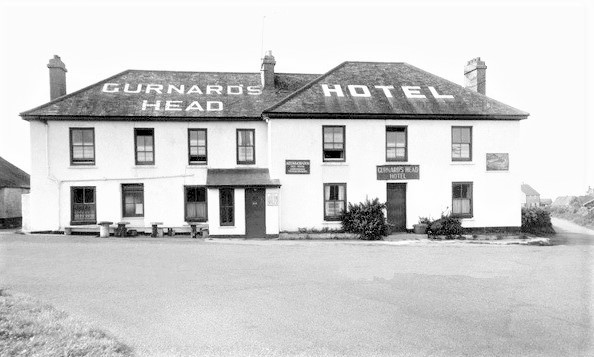
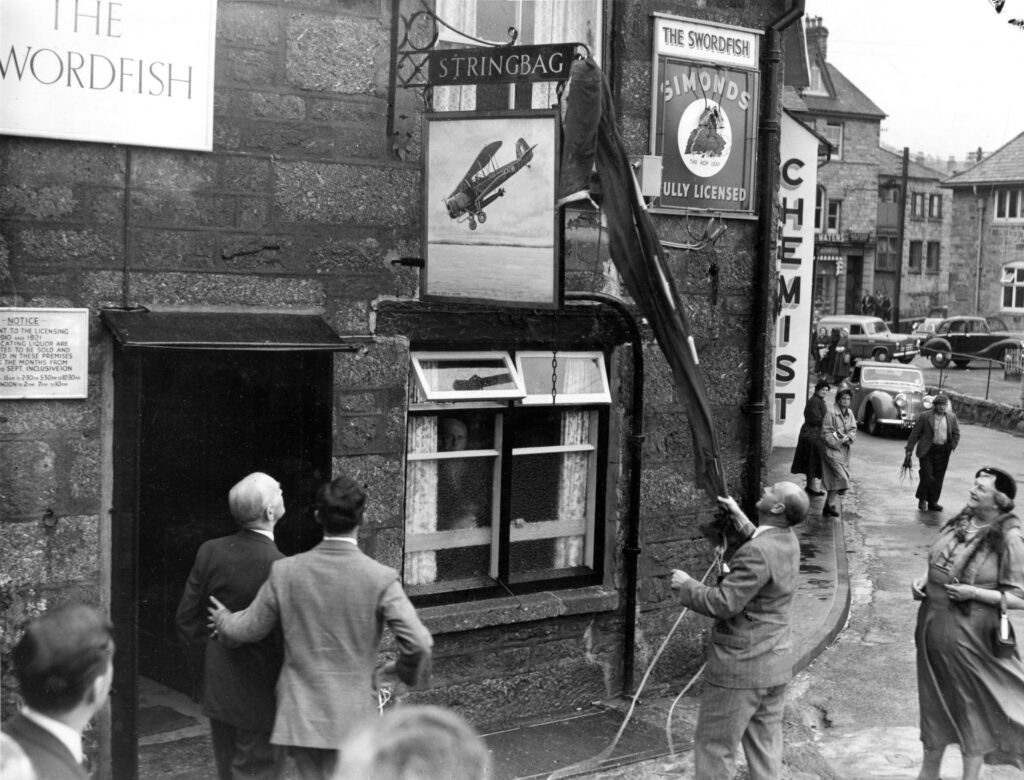
![[59] Voice - Ertach Kernow-110821A Fancy a Pint [L] Ertach Kernow- Fancy a Pint?](https://www.cornwallheritage.com/wp-content/uploads/2021/08/59-Voice-Ertach-Kernow-110821A-Fancy-a-Pint-L-231x300.jpg)
![[59] Voice - Ertach Kernow-110821B Fancy a Pint [L] Ertach Kernow- Fancy a Pint?](https://www.cornwallheritage.com/wp-content/uploads/2021/08/59-Voice-Ertach-Kernow-110821B-Fancy-a-Pint-L-224x300.jpg)